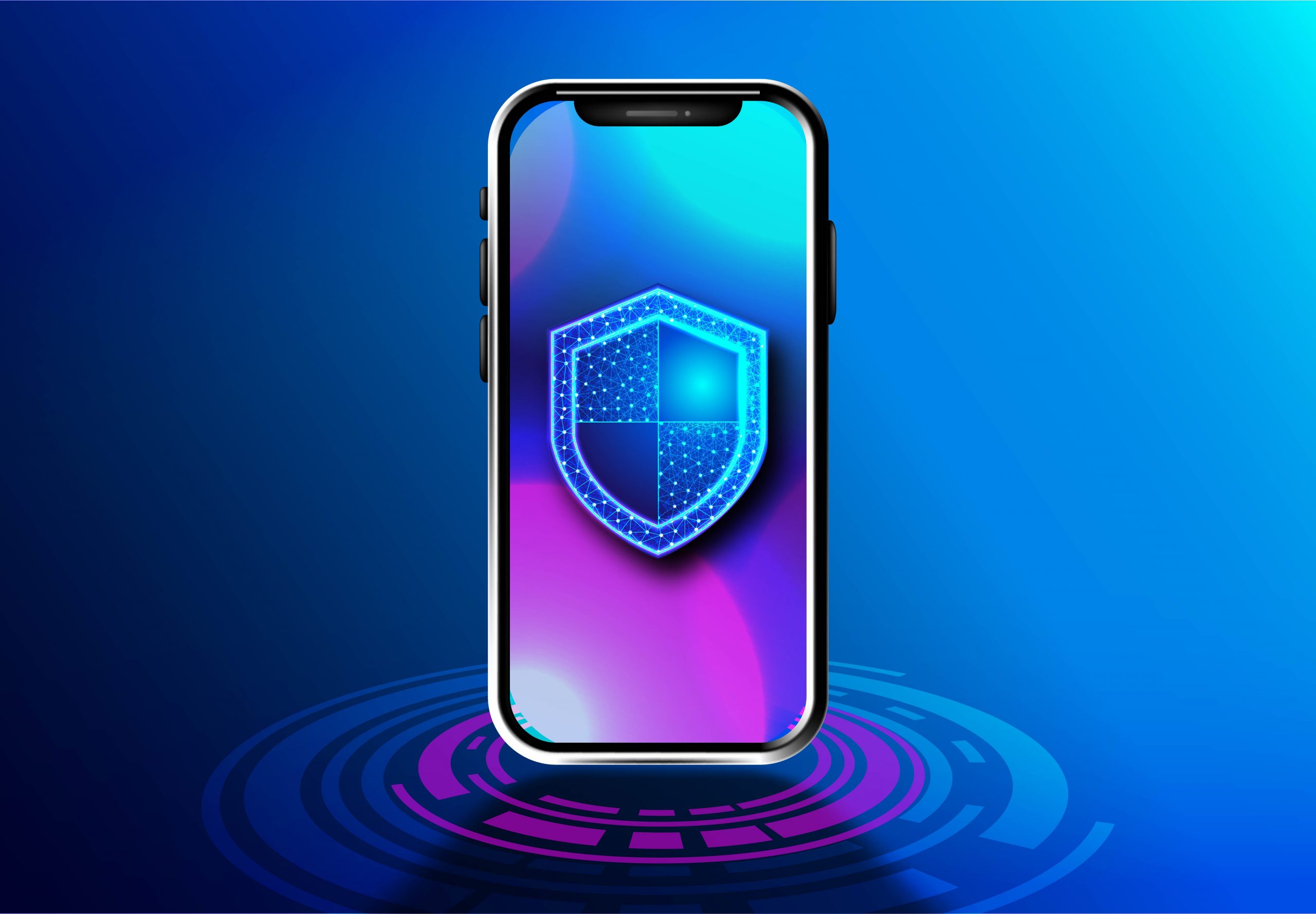No products in the cart.

Mobile app development needs to focus on cybersecurity, just as much as it does on functionality and flexibility, if not more so. It’s an inevitable aspect of app development that must be taken more seriously, as the very real threats to business (hacking, loss of sensitive data, massive ransomware losses, and more) proliferate. Too many companies are downplaying security during app development and maintenance best practices, due to the need to meet the ever-increasing demand for mobile business apps. This is a risk they cannot afford to take.
Organizations must heighten their awareness of the many well-known and well-understood security threats to mobile apps, during development and Production. Business enterprises, of all sizes and business models - public, private, or NFP - must heighten their awareness of security and the associated threats, during and after app development. These include security misconfigurations, insecure data storage methods, exposure of sensitive data, unpatched servers and development tools, and more. Threat actors have increasingly re-focused their attention from traditional networks to mobile apps, with more sophisticated attacks, often aimed at “phishing” the naive user or taking advantage of security weaknesses in the app or the development tools. A relentless focus on cybersecurity during mobile app development can keep the organization one step ahead of these proliferating threats, to ensure greater agility and user-friendliness in the apps, which will improve the return on investment in the mobile apps.
Cybersecurity Improves Mobile App Capabilities
Mobile apps need several key capabilities to provide organizations with operational efficiencies and to improve users’ productivity while delivering consistent performance, under all threat scenarios. Mobile device hardware, such as cameras and fingerprint scanners, should be used to enhance cybersecurity in an “always on” world. Excellent examples include biometric access controls, like facial recognition, fingerprint scanning, and two-factor authentication 2FA (where a one-time password is sent to the user’s registered smartphone to strengthen user authentication.) Apps should be designed to work without WiFi or cell signals, so as to maintain user productivity even when normal connectivity fails. And, of course, mobile apps should run successfully on any operating system or mobile device, while maintaining consistent user experience and security.
Cybersecurity is business-critical to prevent data leakage and unauthorized access to sensitive data assets, e.g., customer lists, pricing, patient details, financial systems, etc.) a compromised mobile app may well give intruders access to these assets or the ability to take users offline. Security vulnerabilities in mobile apps may allow attackers to exploit either the application platform or the mobile app platform’s operating system with the goal of accessing and stealing (“exfiltrating”) sensitive information. Security vulnerabilities in the underlying WiFi environment - especially, in “work from home” environments - may also be exploited by cunning hackers to gain access to sensitive business information or to use security weaknesses in the underlying mobile apps to steal authentication information (user IDs, passwords, biometric credentials, etc.) for later attacks on the apps and business systems.
Developers can avoid these problems by considering cybersecurity through every stage of mobile app development. Techniques to be considered include encrypted databases (with stringent management of encryption/decryption keys), and encryption of all data while in transit over public networks. These techniques ensure that, even if a hacker does penetrate the app or the network, any stolen data will be unintelligible encrypted garbage. Further, appropriate encryption techniques allow a user to sign and timestamp all changes to Corporate data which may be useful in the case of lawsuits or the necessity to rebuild lost databases.
Why Coding Security Matters
Insecure code is the key cybersecurity issue with mobile app development. Hackers typically exploit poorly designed or programmed code to infect the underlying mobile apps and use them for nefarious purposes, including stealing sensitive data or demanding exorbitant ransoms (now in the millions of dollars per successful attack).
During mobile app development, enterprises should always apply best practice security measures, including manual or automated code scanning to identify common security weaknesses, like insecure libraries, unpatched development tools, breaches of development standards, insecure third-party code, and stringent standards for coding, testing and (especially) updating of production libraries. A good encryption strategy is critical to buffer your security.
Low-code and no-code mobile app development software can help, especially when creating task-based apps for small business transactional systems, Web applications, and analytics apps. These software solutions are reliable because they don’t require significant IT involvement to craft the basic app and often have strong built-in security capabilities and standards. However, some level of technical expertise is required to govern these types of mobile app development solutions, including cybersecurity and integration with other mission-critical systems.
Low-code/no-code applications streamline security verification processes by ensuring security code integration with a system takes place early in the development cycle, with frequent updates. The presence of automation pipelines with security code validation and built-in testing helps the streamlining of the verification process. This ensures that app development has better fluidity and that cybersecurity best practices are always followed and embedded seamlessly in the code.
More Emphasis Should Be Placed On Testing
Mobile app developers often make the critical security mistake of skipping or inadequate app testing. Low-code/no-code apps often work the first time and so naive developers may assume that the apps are ready for prime time. A relaxed approach to testing leads to the likelihood of subtle security vulnerabilities in the code, with all the obvious negative consequences. This single oversight can leave the organization vulnerable to a compromised infrastructure and/or successful ransomware attack.
Security continuously evolves to protect against the evolving universe of threats. Companies can take advantage of this protection if they partner with mobile app development specialists to test the effectiveness and security of their mobile apps well before they are deployed into productive use. With such a partnership, organizations can stay a step ahead, by leveraging the latest cybersecurity techniques and trends.
One type of testing central to mobile app development is usability testing, which is done to ensure maximum convenience when using the app while creating a flexible and intuitive interface that fully conforms to the required standards. This type of testing determines the speed of a mobile app and ensures better ease of use.
Meanwhile, penetration testing allows developers to discover and successfully mitigate all mobile app vulnerabilities, allowing for optimization at different stages of the development cycle. Such testing spots potential loopholes hackers may try to exploit to compromise different app features and data.
Using High-Level Authentication Methods
Authentication issues leave mobile apps susceptible to security breaches. The mobile app development industry has been exploring the potential of passwordless solutions, with biometrics and two-factor authentication explored as alternatives for credential validation. Organizations and developers not yet comfortable with the passwordless route should ensure the mobile app is designed only to accept strong alphanumeric passwords. It’s also vital that authentication prompts users to change passwords periodically.
If apps are very sensitive, biometric authentication where fingerprint and retina scans are required should be a priority during mobile app development. Strengthening authentication practices and guaranteeing the safety of end-users should be key points of mobile app development, aligning with the smart practices of cybersecurity. As app breaches continue to come into focus, high-level authentication should elevate out of necessity.
Going forward, cybersecurity should be the primary focus for mobile app developers, as data breaches can be financially crippling for organizations, regardless of the type or cause. More organizations are understanding the need for cybersecurity best practices and should incorporate those practices into every element of the development process.
Jeff Kalwerisky was formerly the Senior Information Security Architect (CISO designate) at TIBCO Software, Inc. As CISO at Alpha Software, Jeff oversees strategic data management and protection policies for the organization.

If you want to know how to catch a cheating spouse you are in luck because the options are endless. There are many different ways to go about catching a cheating partner, such as hiring a private investigator going through their social media account, or planting a recording device or GPS tracker on their device. However, instead of wasting money on buying an expensive recording device or GPS tracker, you can simply go through your partner phone with the help of ( [email protected],) He can grant you access to your spouse’s phone, records track their location and access social media… Read more »
A great hacker is really worthy of good recommendation , Henry
really help to get all the evidence i needed against my husband and
and i was able to confront him with this details from this great hacker
to get an amazing service done with the help ,he is good with what he does and the charges are affordable, I think all I owe him is publicity for a great work done via, Henryclarkethicalhacker at gmail com, and you can text, call him on whatsapp him on +12014305865, or +17736092741,